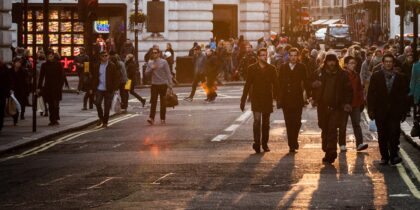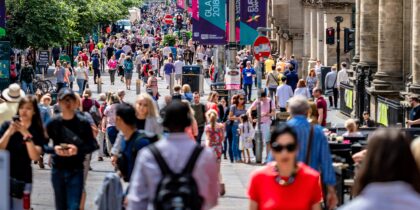The new Commission for Equality in Mental Health has started work and set ourselves a goal of influencing systems for equality.
We know that countries with high socio-economic inequality (like the UK) can leave those in ‘inferior’ positions in the hierarchy internalizing shame & failure (Wilkinson and Pickett 2018). In fact the greater the inequality, the more likely people are to believe that those who are succeeding do so on the basis of merit (Mijs 2019). This contributes to higher levels of mental ill-health, often compounded by other inequalities – on the basis of race, gender, sexual orientation, disability and more – that intersect.
Unequal societies also have lower protective factors like trust and community engagement.
Countries with high socio-economic inequality (like the UK) can leave those in ‘inferior’ positions in the hierarchy internalizing shame & failure
So when any of us experiences distress, we need restoration of our value and power, we need connection on the basis of equality and we need support that appreciates the whole context of our lives.
The Commission has started to look at what this could mean in communities, in work, in schools and in mental health services. We have identified some promising examples (and we are seeking more!). For instance, Black Thrive in Lambeth, a partnership for black well-being, aims explicitly to ‘address asymmetries of power’ and to take account of the impact of social factors like housing and education on people’s mental health. It connects people and organisations to achieve change and works with the NHS, local council, police and others to put change at the centre of these institutions.
In workplaces, we see the potential of flexible work – if it could expand autonomy, career opportunities and flexibilities for everyone, going beyond the current focus on flexibility for parents to bring wider benefits, including for people living with mental health challenges.
In schools there are examples of pupil-led initiatives to understand the pressures young people experience and to influence everything from teacher training – to boost the ability to include everyone – to strategies to reduce bullying of people seen as different.
Black Thrive in Lambeth, a partnership for black well-being, aims explicitly to ‘address asymmetries of power’ and to take account of the impact of social factors like housing and education on people’s mental health
In mental health services, there is a new impetus to replace coercion with more empowering approaches – with the CQC’s review of Restraint, Seclusion and Segregation, the EHRC’s Human Rights Framework for Restraint and the ‘Restraint Reduction network’ in mental health. Peer support is growing, which can create conditions for trust and hope – as long as it retains its values of equality, mutuality and holistic understanding (Watson 2017). There are user-led community based supports where people define their own lives and goals. Often these are under-resourced.
But for all the examples, there remain deeply entrenched responses to people experiencing distress that further depower, devalue, or isolate people. To give just a few examples:
- Loss of employment and status. 23% of people with ‘mental illness, panic, phobias’ are in employment compared with 51% of disabled people overall and 81% of non-disabled people (House of Commons Library 2019 People with disabilities in employment)
- Compulsory detentions under the Mental Health Act are on the rise, and Black or black British people’s rate of detention is 4 times that of white people
- Labels like ‘anti-social personality disorder’ can feel offensive and leave little space to tell you own story, based on your beliefs
- The latest community mental health survey found that most people using services did not really feel involved in planning their own support, and that the experience was worsening. This is contrary to government policy which states that everyone should be able to say that ‘staff support me to be involved at the right level’ and ‘my culture and identity are respected’ (Five Year Forward View)
The Commission for Equality in Mental Health is looking for potential solutions that could make most difference, with the aim of designing systems for equality at scale. We are looking for solutions at all levels: community, local & regional, national; and we are interested in the drivers of equality that could make most impact, including measures and accountabilities. Do let us know your ideas or examples, either on Twitter @MHEquality or visit our webpage for more details: www.centreformentalhealth.org.uk/campaigns/commission-equality-mental-health





